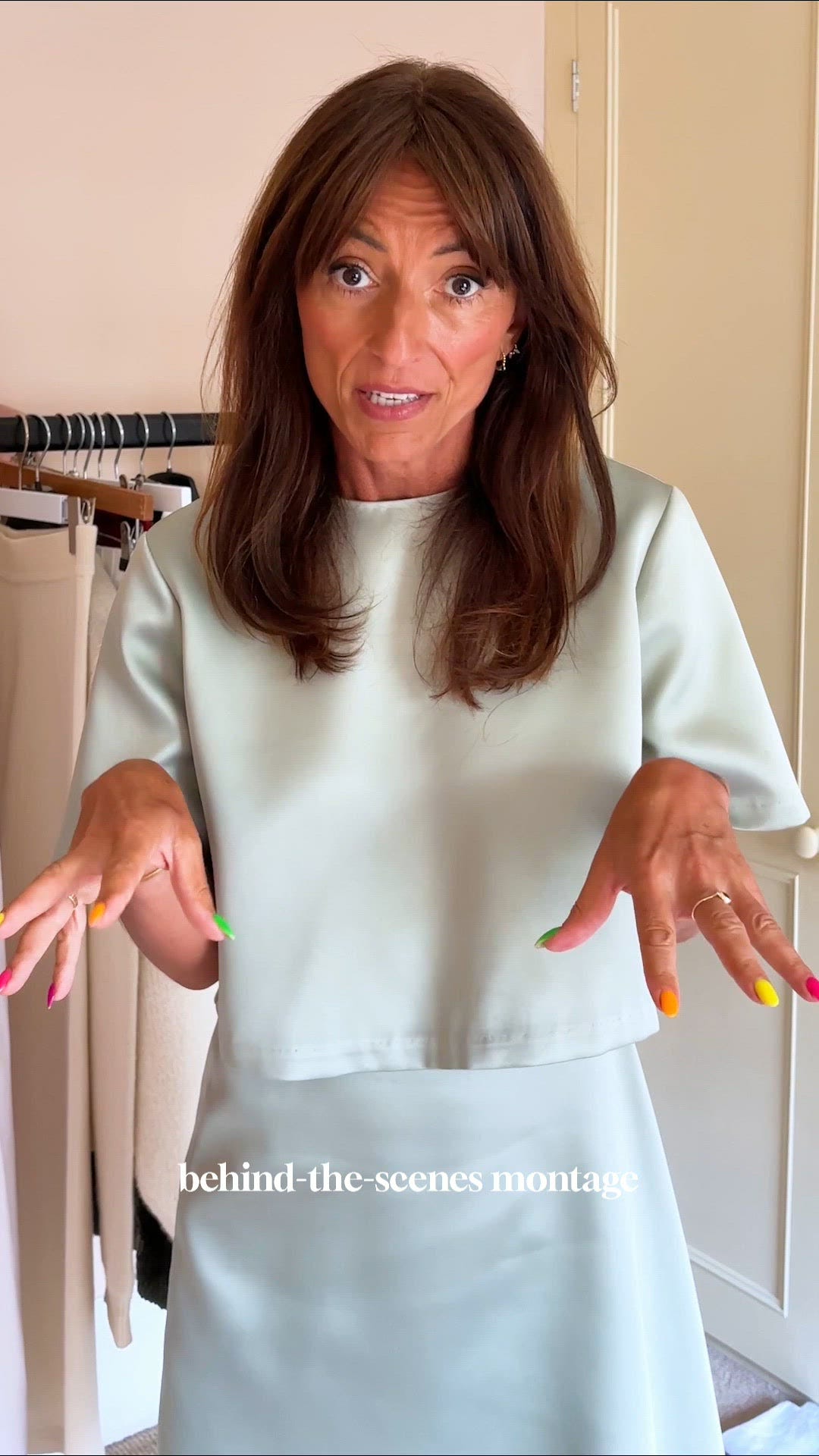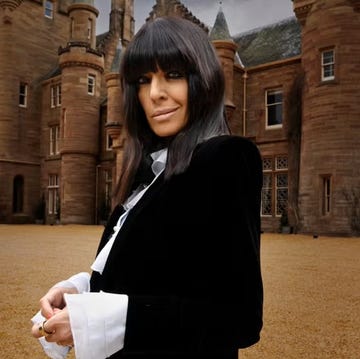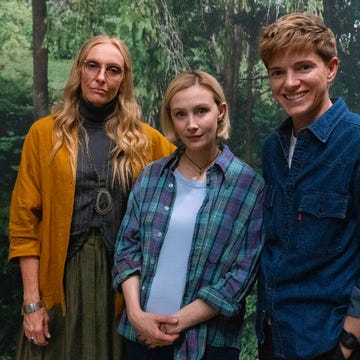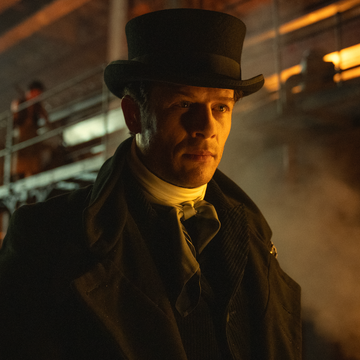‘My father would have so hated it if I’d tried to have a conversation like that with him – a fully open and intimate one,’ says Reverend Richard Coles. ‘He’d have retreated to his study and put on Mahler. I knew he loved me, and he knew I loved him, but we didn’t really say it to each other until he got to the end of his life. And it was good to say it out loud.”
Richard is reflecting on the conversations he had with his parents in adulthood, as well as those he feels he should have had, as the second season of his podcast readies to launch. In each episode of The Apple & The Tree, a parent and their adult child sit down to talk about the parts of their shared history they’ve never discussed before, in a way that would definitely have given his father the occasional provocation to squirm.
‘The point is to give people permission to ask difficult questions and tell difficult truths,’ explains Richard. ‘Pretty much without exception, the guests have benefited from asking and answering those questions, and discovered things they didn’t know.’
What to read next
So, what main themes and questions have recurred across the two series in which Richard has invited adult guests and their older parents to sit down this way? What do adult children and their parents most want to ask each other?
Why didn’t you admit your frailty to me?
‘This one comes up in every podcast in one form or another,’ says Richard. ‘That moment of realisation, on the part of the child, that their father or their mother is not omnipotent.’
Why do parents project and protect this impression that they are infallible? ‘As a parent, your job is to give care, and you need to do that in a way that inspires confidence and encourages the kid,’ suggests Richard.
Also: ‘Parents sometimes fear they will look lesser in the eyes of their children if they admit to frailty and faults. And, of course, they don’t. They just look more like a relatable, human figure. And that’s good. I remember my own realisation that my parents were not omnipotent, and thinking, “Oh, so are they like me then?” It was a good discovery. Not everyone’s comfortable with discovering that about their parents, but it is an important part of growing up.’
Why were you so annoying?
‘I must have driven my mother mad, because I was always, relentlessly testing the boundaries: why, why, why…’ says Richard.
Perhaps the reason that parents and children do not ask this question of each other, even as adults, is because we fear the answer. God forbid they should reply that you did everything wrong, your opinions were distasteful or – worst of all – they simply did not like you. But that’s unlikely to be the response, says Richard. Instead: ‘A major – if not the major – part of growing up is testing your boundaries. And the person who sets those boundaries is your parent. So there’s always going to be tension in that, but it’s a healthy process.’
Did I ever disappoint you?
‘I know the answer to this one, I think, and in my own case the answer would be yes, but it was survivable,’ says Richard. ‘Nothing ever happened that displaced us from the position we held in each other’s lives.’
Asking the question, and knowing the answer is helpful, he believes. Not only because the truth is likely to be less awful than you fear, but also because a dose of the truth is good for us: ‘I do think realism is essential to happiness. Or, at least, as much realism as you can take. If you can discover that it’s not only survivable to find out you did disappoint in some ways, but it’s actually good for you to examine your limits, then that might be the beginning of wisdom.’
Was I present enough?
This one is a question that both parent and child want the answer to, suggests Richard. When it comes to our behaviour within our closest relationships, he says, ‘We’d all like to get gold stars.’
There are few greater responsibilities than raising a child, so, ‘Of course, as a parent, you’re going to be marking yourself all the time. But most people do a good job, you know?’
Meanwhile, towards the end of their parents’ lives, adult children often face the same reckoning. ‘We ask ourselves: “Did we do enough to care for them?”’ says Richard. ‘I was very loving towards my mother as she got older. I told her I loved her a lot. We never used to do that – it wasn’t in our repertoire – but as she got older, I know she appreciated it.’
Both his parents had debilitating degenerative diseases. ‘So their lives, as they got to the end of them, got really tough,’ he says. ‘So that would be a difficult question to ask: do you think I did enough for you? I fear the answer would be no. I think I could have done more; I could have been better.’
Even that conclusion can be healing, or at least constructive, Richard suggests: ‘You might just have to learn to live with the gap between what you hoped for and what you got. That’s not bad; that’s part of being alive. There’s something very rewarding about accepting the reality of things. When you’re young, you think you’ll have endless opportunities to make running repairs. But as you get older, you realise: “There’s more stuff that needs repairing than I’ve got capacity to handle – well, I’ll have to suck it up.”’
Why did you think I looked good in a burgundy bow tie?
‘This one may be specific to me,’ acknowledges Richard. ‘My mother thought Sir Roy Strong, who was the director of the National Portrait Gallery, was absolutely the bee’s knees. She would, I think, quite have liked me to turn out to be a foppish preacher in a bow tie, who knew all about 18th-century portraiture. Guess what? That’s exactly what she got.’
There is, Richard thinks, a more universal question to be drawn for this personal one: why did you want me to fit a particular template? In his own case, his mind often travels back to the bow tie he was wrestled into as a child: ‘I looked horrific, like a novelty child on Wogan. Why did she do that, I wonder? I don’t think I’ll ever know.’













